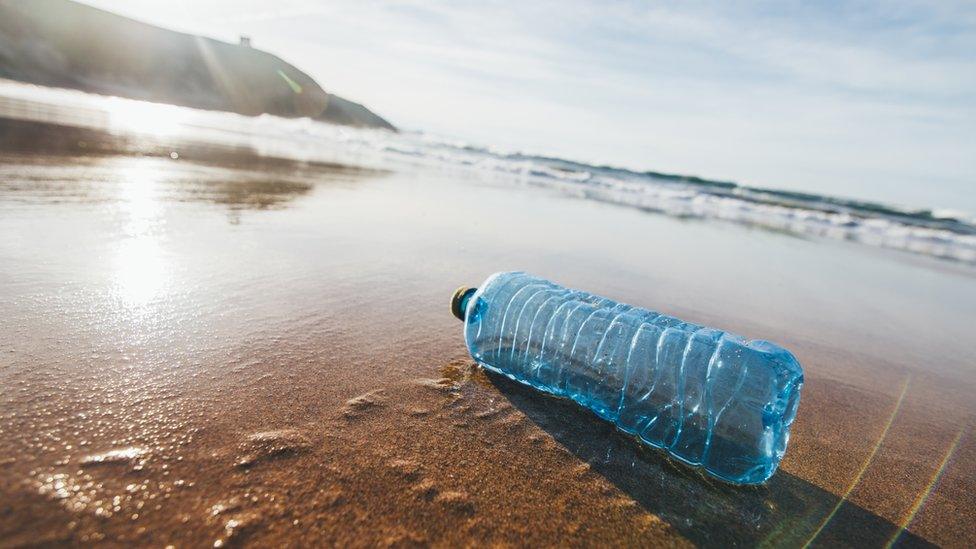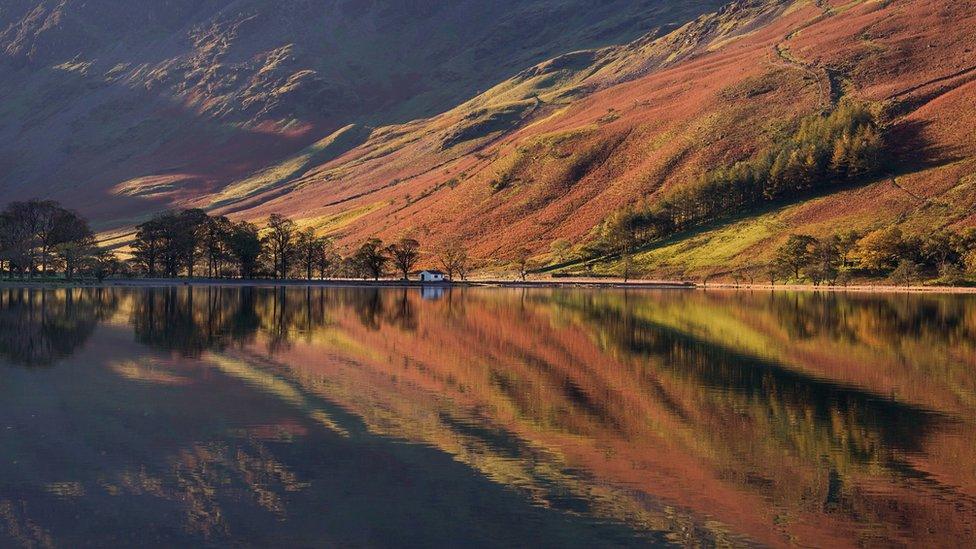Climate: Government postpones Environment Bill again
- Published
- comments

The government has decided to postpone the Environment Bill after it is debated in the House of Commons on Tuesday.
It says ministers are still committed to the legislation, but the pandemic has left too little time to scrutinise it properly.
Campaigners are angry at the latest delay to a bill that was first launched back in July 2018.
They say the hold-up will leave people breathing unfit air for longer.
The delay will also make it harder for the government to hit targets to improve water, reduce waste and protect wildlife, campaigners argue.
Amendments to the planned legislation have been debated by MPs on Tuesday, but it will not return to the Commons until the next Parliamentary session - probably in the spring.
The bill sets long-term binding targets for improving the UK's natural world.
Most of it applies to England and Wales only, but some parts, such as waste management, apply to Northern Ireland only.
Provisions on waste including producer responsibility, resource efficiency and exporting waste will apply to the whole of the UK.
Measures on the environmental recall of motor vehicles and the regulation of chemicals are also UK-wide.
Beccy Speight, the RSPB's chief executive, said: "The slow, stop-start nature of the Environment Bill's passage does not help us take the rapid action needed to tackle the nature and climate emergency.
"Our only hope is that this delay is used to improve the bill. Environmental groups including the RSPB have made a series of measured and sensible improvements, such as legally binding targets to turn the tide on the loss of nature, and these should now be seriously considered.
"These changes would help us get our own house in order at a time when the prime minister wants to show international leadership in the run-up to the key global biodiversity and climate summits later this year."
Ministers say they want to leave nature in a better state than they found it. They have set targets for improving water, waste and wildlife - but these won't become legally binding until 2027, which campaigners say is far too late.

Campaigners say they are troubled by the delay to the legislation
They want the targets to be brought forward to 2030 at the latest.
Craig Bennett, chief executive of The Wildlife Trusts, said: "The news of yet more delay is deeply troubling.
"The prime minister said the bill was 'the huge star of our legislative programme… a lodestar by which we will guide our country towards a cleaner, and greener future'.
"The fact that the government plans to end the Parliamentary session over a year on without having delivered the 'star' of the programme will raise questions over its commitment to leaving the environment in a better state for the next generation.
"Recently, the prime minister explicitly committed to taking urgent action to put nature on a path to recovery by 2030 as part of the UN Decade of Action. But over a year into the decade, very little progress has been made."
Environment Minister Rebecca Pow told the Commons the bill would return early in the next Parliamentary session and become law "by autumn".
She added: "The necessary changes we've had to make to our procedures in order to keep members, the public and of course staff safe have put extraordinary pressure on the Parliamentary timetable and I want to reassure all members that the government remains committed to getting this Environment Bill on to the statute book."